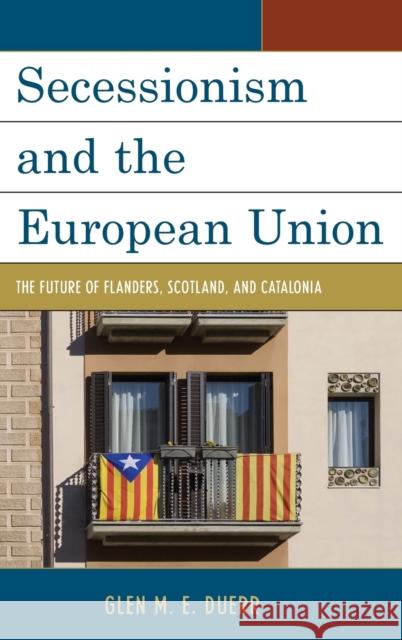Secessionism and the European Union: The Future of Flanders, Scotland, and Catalonia » książka
Secessionism and the European Union: The Future of Flanders, Scotland, and Catalonia
ISBN-13: 9780739190845 / Angielski / Twarda / 2015 / 226 str.
Secessionism and the European Union: The Future of Flanders, Scotland, and Catalonia
ISBN-13: 9780739190845 / Angielski / Twarda / 2015 / 226 str.
(netto: 428,50 VAT: 5%)
Najniższa cena z 30 dni: 448,99
ok. 30 dni roboczych
Bez gwarancji dostawy przed świętami
Darmowa dostawa!
Secessionist (also called, nationalist, or pro-independence) political parties exist in many countries in the developed world; they raise--and then spend--a lot of money, win votes in elections, and their elected officials serve in seats in local, regional, and national parliaments. Yet, despite all of this effort, there has not been a successful case of secession since 1921 when the Irish Free State effectively seceded from the United Kingdom (UK). Perhaps the biggest issue is that these secessionist political parties have rarely been popular enough to form a government even amongst their core ethnic group. This is further compounded by the fact that secessionist parties have historically been unable to win support from immigrants or people outside their core ethnic and/or linguistic group. Given this context, four central questions are posed in this study including: whether--and also why--any of the secessionist parties have transitioned from ethnic-based to civic-based policy platforms? Why have these secessionist parties not yet achieved independence? And, what role does the European Union (EU) play in facilitating or deterring secession in independence-seeking regions within member states? This study examines three different cases--Flanders in Belgium, Scotland in the UK, and Catalonia in Spain--to investigate how secessionist political parties are approaching the issue of independence. All of the cases are different with respect to history, governmental structure, and economic situation. Yet all of the cases are similar in some ways--they are close to the same size (in terms of population), operate within mature democratic political systems, have distinct secessionist political parties, and all reside within member states of the EU. Categorically, in all cases, there are also shared influences of the ability of the region to secede: institutions, interests, and ideas.











